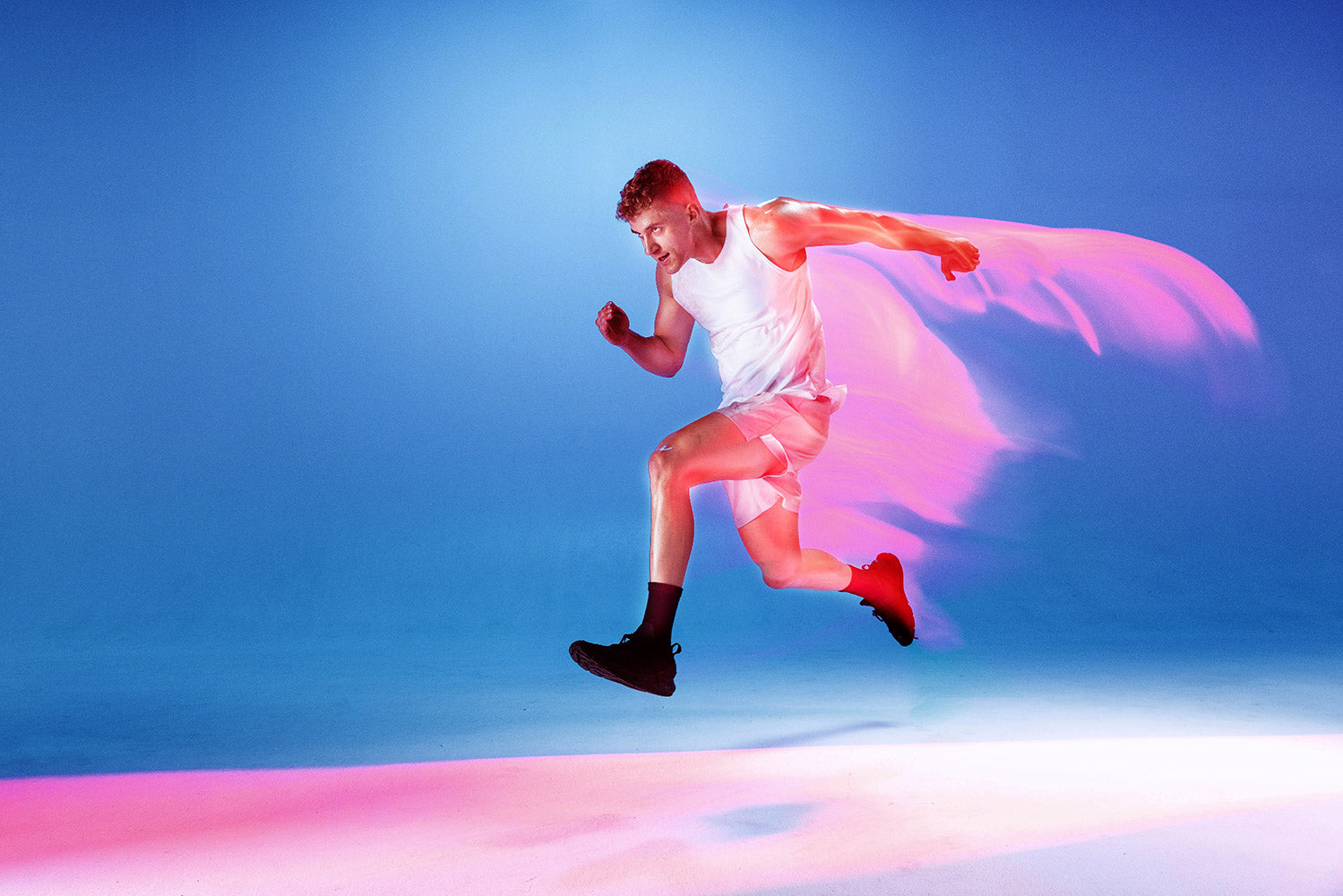Written by Jennifer Ho Sports Dietitian. MS, RD, CD.
WHAT IS CAFFEINE?
The morning cup of coffee.
For many, it's the first step of a morning routine. A few sips down, and you are ready to take on the day. Why does caffeine give us that energy we crave in the mornings?
Caffeine is a drug that stimulates the central nervous system and increases alertness and awakeness. It does so by blocking receptors of a molecule called adenosine. Adenosine slowly rises throughout the day and is responsible for our tiredness by late afternoon and evening.
By blocking adenosine, caffeine makes us feel more awake. However, this also goes to show that caffeine only provides temporary energy. A well-balanced diet is a foundation for sustained energy the whole day.
Natural caffeine sources include coffee, tea, yerba mate, and chocolate.
Sodas and energy drinks generally contain synthetic forms of caffeine.
There are no significant differences between natural and synthetic caffeine in terms of influence on wakefulness. However, added sugar and additional ingredients in soda and energy drinks can steer people towards natural caffeine sources.
DOES IT DEHYDRATE?
You have likely heard that caffeine dehydrates you. Is it true?
Yes and no.
The extent of dehydration from caffeine is mild and unlikely to impact performance hydration. Caffeine dosage also influences its diuretic effect. Intakes more than 300 mg, equivalent to about 3 cups of coffee, could cause slight increases in urine volume.1
Though dehydration from caffeine should not raise concerns, it is always a good habit to hydrate before any training session.
A glass of water with your coffee or tea will help maintain your hydration.
USE IN SPORT
Athletes can use caffeine to their advantage for sports performance.
It requires time to trial forms of caffeine, timing, and dosage. It is always best to do trial and error with sports nutrition products during practice or training bouts before trying to implement them in a competition.
The use of caffeine can improve muscular endurance, strength, and mental focus.
Movements specific to power sports, such as jumping, sprinting, and throwing, have also shown improvements.2
In endurance sports like running, cycling, and cross-country skiing, caffeine positively influences power output and time-trial completion.
Sports nutrition products with caffeine can include pre workouts, gels, chews, drinks, and gums. One form is not necessarily better than the other. Caffeine tolerance and product digestibility are individual.
CAFFEINE TIMING AND DOSING
Caffeine timing can influence performance. Generally, caffeine intake is recommended 1 hour before training to ensure peak concentration aligns with the start of exercise.
Studies have shown improvements in performance with dosages of 3-6 mg/kg.2 Dosages as low as 2 mg/kg may yield slight enhancements. When trialing caffeine dosages, consider what is tolerable before trying higher amounts.
2BEFORE'S PRE WORKOUT OPTIONS
2before’s caffeinated blackcurrant pre workout can be an option for someone looking to try a natural caffeine source before exercise.
Each sachet contains 120 mg of caffeine sourced from green coffee beans.
Blackcurrants are antioxidant-rich and provide multiple benefits to exercise. These include improvements in cognitive function, vasodilation, and recovery.
The performance benefits from caffeine can give an athlete the upper edge against the competition.
- Zhang Y, Coca A, Casa DJ, Antonio J, Green JM, Bishop PA. Caffeine and diuresis during rest and exercise: A meta-analysis. J Sci Med Sport. 2015;18(5):569-574. doi:10.1016/j.jsams.2014.07.017
- Guest NS, VanDusseldorp TA, Nelson MT, et al. International society of sports nutrition position stand: caffeine and exercise performance. J Int Soc Sports Nutr. 2021;18(1):1. Published 2021 Jan 2. doi:10.1186/s12970-020-00383-4



